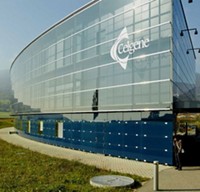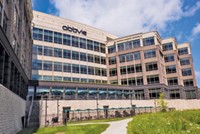Advertisement
Grab your lab coat. Let's get started
Welcome!
Welcome!
Create an account below to get 6 C&EN articles per month, receive newsletters and more - all free.
It seems this is your first time logging in online. Please enter the following information to continue.
As an ACS member you automatically get access to this site. All we need is few more details to create your reading experience.
Not you? Sign in with a different account.
Not you? Sign in with a different account.
ERROR 1
ERROR 1
ERROR 2
ERROR 2
ERROR 2
ERROR 2
ERROR 2
Password and Confirm password must match.
If you have an ACS member number, please enter it here so we can link this account to your membership. (optional)
ERROR 2
ACS values your privacy. By submitting your information, you are gaining access to C&EN and subscribing to our weekly newsletter. We use the information you provide to make your reading experience better, and we will never sell your data to third party members.
Business
AbbVie invests in Alector’s immunoneurology therapies for Alzheimer’s
The $225 million deal will support drugs that boost immune cell activity in the brain
by Ryan Cross
October 24, 2017
AbbVie is betting big on the idea that the immune system can be recruited to fight neurodegenerative diseases such as Alzheimer’s. The big pharma firm is investing $225 million in Alector, a four-year-old South San Francisco-based biotech firm trying to jump-start a new therapeutic field called immunoneurology.
The majority of Alzheimer’s treatments in development take direct aim at the amyloid-β or tau proteins that are known to accumulate in the brains of people with the disease. But most of those drug candidates have failed in mid- or late-stage clinical trials. Rather than reduce aggregations of amyloid-β and tau directly, Alector’s approach is to recruit the brain’s immune cells to do the job, hopefully improving the connectivity and survival of brain cells.
Alector CEO Arnon Rosenthal says immunoneurology is directly comparable to the burgeoning field of immuno-oncology treatments, which restore or boost the immune system’s natural ability to seek and destroy tumors. “We have a lot of hope that this new field could provide a broad answer to dementia and other neurodegeneration,” Rosenthal says.
Evidence for the immune system’s involvement in neurodegenerative disorders has mounted in recent years. Importantly, researchers discovered that certain genetic variants associated with an increased risk of Alzheimer’s are found in immune cells but not in neurons. Alector is designing antibodies that latch onto and activate or inhibit proteins on the surfaces of microglia and macrophages—immune cells found in the brain—to treat neurodegenerative diseases and dementias.
AbbVie’s investment—a $205 million upfront payment and potential, future $20 million equity investment—will allow Alector to put two Alzheimer’s drugs into the clinic and support their development through Phase II studies, Rosenthal says. After that, AbbVie would conduct a larger Phase III study and potentially commercialize the drugs, with an option for 50-50 profit sharing between the two firms.
Rosenthal adds that Alector plans to move five compounds, all for different indications, into the clinic within two years, and is currently pursuing drug development against a total of about 10 different immunoneurology targets.
Although Rosenthal would not disclose Alector’s targets, patents filed in 2015 indicate the development of antibodies against a microglial protein called TREM2. That target is generating excitement among Alzheimer’s researchers due to the discovery that genetic mutations in the gene for TREM2 can increase the risk of developing Alzheimer’s two to fourfold.






Join the conversation
Contact the reporter
Submit a Letter to the Editor for publication
Engage with us on Twitter